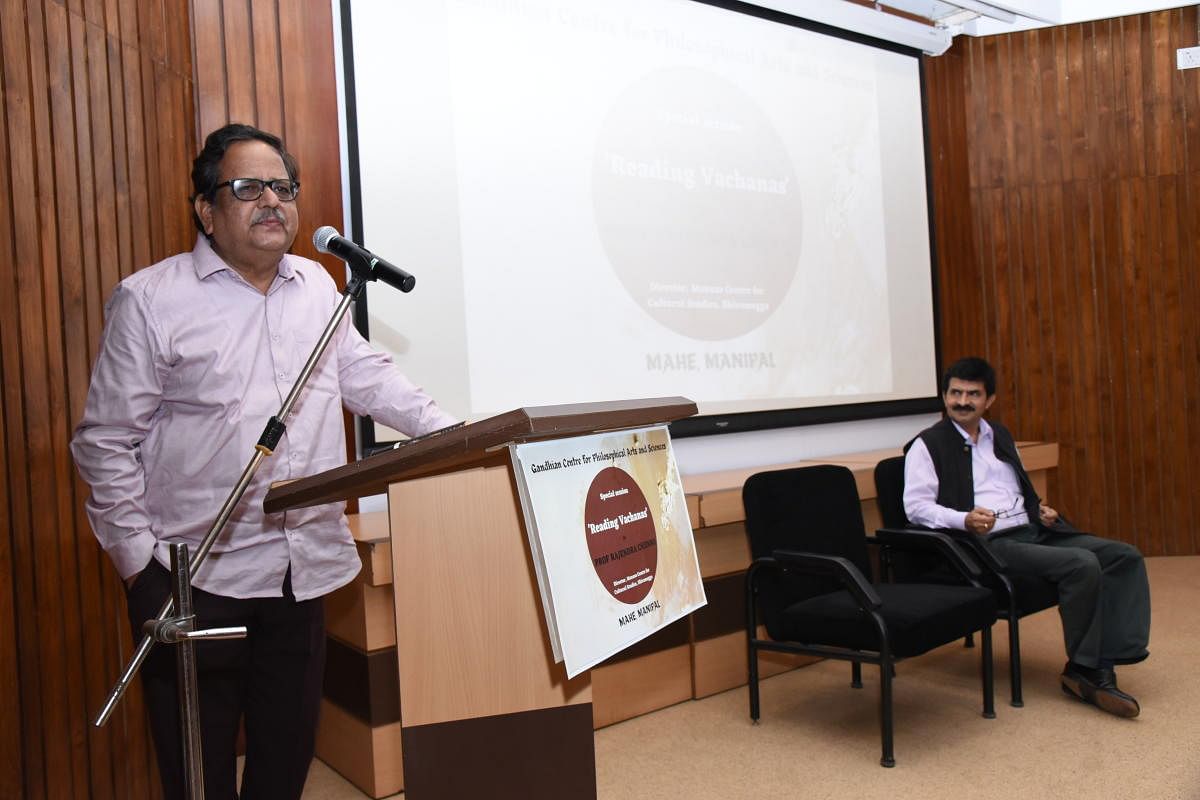
Well-known cultural critic Prof Rajendra Chenni said that the ‘new politics’ of the 12th century Sharana movement in Karnataka led to ‘new poetics’, giving rise to unparalleled Vachana literature.
Delivering a special talk on ‘Reading Vachanas’, under the auspices of Gandhian Centre for Philosophical Arts and Sciences, MAHE, Prof Chenni observed that during the Sharana movement, men and women belonging to different occupations and different social strata wrote poetry and this actually changed the very poetics of that age.
It was a violent age-caste and class-ridden and there was a need to talk about compassion. Basavanna (Basaveshwara), Akka Mahadevi, Allama Prabhu, Devara Dasimayya and many others wrote and lived in such a way that the hierarchical caste structure was to be broken so that spiritual experience becomes accessible to everyone, regardless of one’s caste background, he said.
This was also the authentic voice of the working class. The rejection of caste, gender, ritualistic, elitist-classicist discrimination and the acceptance of work (labour) as worship (Kayakave Kailasa), changed the very language of their poetry, he added.
As Basavanna declared ‘Aanu Olidante Haaduvenu’ (I sing as I please) defined the ‘new poetics’ of the age. The greatest poet, Akka Mahadevi, wrote about the fluidity of gender in no uncertain terms than itself. She used the erotics of the body to depict the aesthetics of spirituality. Allama Prabhu engaged with all philosophical positions of his age to make his point, said Prof Chenni.
He also cited several Vachanas from different Vachanakaras, including Devara Dasimayya, Madivala Machaiah, etc, to elaborate his points.
GCPAS head Prof Varadesh Hiregange said that the Sharana movement was the most turbulent phase, socially and philosophically, and it finds its finest expression in vachanas.